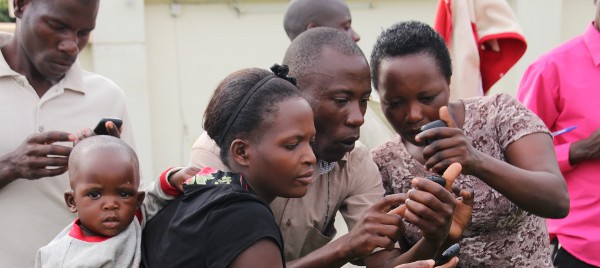Last week was the mobile phone’s 40th birthday! While it seems hard to imagine a world without mobile phones, in 2000 mobile phone penetration in many developing countries was less than 6%. Now, mobile phones are so ubiquitous that it is surprising to see households in the poorest parts of Africa without a mobile phone. And this technology has done more to alleviate poverty than any other modern technology available today. In fact, according to Forbes, “a rise in 10% of the population with a mobile leads to, in a country without a landline network, a rise of 0.5% in GDP each and every year.”
What can we expect next from mobile phone technology? As mobile phones move beyond being an efficient means of communication, we will continue to see many more uses for phones for mobile healthcare, agriculture, education, mobile data collection, community services, governance, and as a method of empowering those less fortunate to find new opportunities. For those living in extreme poverty, it becomes apparent that having a mobile phone is a way out. For example, there are now services that enable job seekers to receive job alerts and apply for jobs directly from their mobile phones, and non-profits can broadcast SMS campaigns about AIDS health education, emergency alert systems, or severe weather alerts. Farmers can get real-time stock prices and make informed decisions. None of this would have been possible without that first phone call over 40 years ago.
Who would have thought how far mobile technology has come in such a short 40 years? We may not be able to predict where mobile technology will go, but if we can continue to use mobile phones to help people over the next 40 years, perhaps we can drastically reduce or even eliminate the number of people living in extreme poverty. What a great 80th birthday present that would be!
Tell us below about your first mobile phone experience or your first encounter with a mobile phone alleviating poverty.

